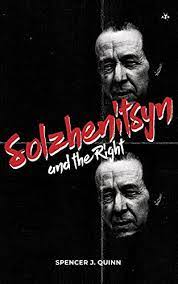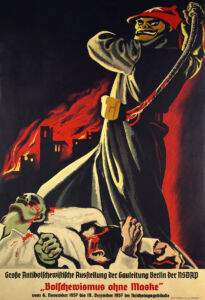Sperging the Second World War: A Response to Travis LeBlanc
2,347 words
Travis LeBlanc dropped a lot of wisdom and perspective on us regarding the Second World War and the Jewish Holocaust in two recent essays for Counter-Currents. Judging from the comments in response to them, it seems the Counter-Currents readership is well aware of this and appreciates his efforts. I certainly do. Although he expressed a fair number of historical opinions regarding the world wars, his main thrust was to discourage what he calls “spergery,” or how the excessive, specialized interest in the Second World War among dissidents can quickly drive a political movement into the weeds. Or even cause it to crack up altogether through absurd purity spiraling:
I don’t begrudge a man his simple pleasures, but I do resent it when people try to shoehorn their hobby into their activism, or worse, try to turn the avowal of their hobby into some kind of litmus test for pro-white activism, or worse, accusing you of being a cuck if you are not openly pro-Hitler.
Our esteemed Mr. LeBlanc is entirely correct about this. One should not be required to worship at the altar of Uncle Adolf to be accepted as a dissident in dissident circles. On the other hand, I did open my three-part review of David Hoggan’s The Forced War at The Occidental Observer thusly:
The best litmus tests for today’s Dissident Right should include only one question: did the right side win the Second World War in Europe?
If you answer yes, most likely you’re not a dissident. If you answer no, most likely you are. In this case, degrees don’t matter — neither does intent. One can profess the saint-like innocence of the Nazis in the face of their genocidal enemies, or one can cop to all the atrocities ascribed to the Nazis and support them anyway. Dissident. On the other hand, one can carefully weigh the actions of both sides conclude that the Nazis were slightly more in the right than the Allies. Doesn’t matter. Dissident.

You can buy Spencer Quinn’s novel White Like You here.
Clearly, there is a circle which needs to be squared, and in this essay I will attempt to do just that.
From what I have seen online, there are many who take an interest in German National Socialism much farther than I ever would — and I’m not even limiting myself to actual Nazis, but also to those who’ll react to news stories about trannies exposing themselves to little girls in restrooms by unfurling a swastika on their Telegram channels. Herr Hitler would not have allowed such abominations. While such people typically don’t offend me, I do detect a “lost cause” effect wherein such folks to varying degrees live in the past.
The American Civil War was a similar historical watershed, albeit much smaller in scale than the Second World War, and also produced a generation of writers who dedicated their energies and intellects to exonerating their beloved Southland after its tragic defeat. Names such as Albert Taylor Bledsoe, Edward Pollard, and Alexander Stephens may not appear often on the lips of modern dissidents, but a parallel can be drawn between the Southern Lost Cause and the profound interest many of today’s dissidents have in National Socialism. Lost-Causism should never be discouraged per se because we all are a product of history in one way or another. But taken too far, it can impede how the inheritors of history — i.e., us — prepare for the future.
LeBlanc does not deny that there are good reasons to study the Second World War. He just doesn’t seem to think the juice is worth the squeeze after a certain point, since there are unrelated current issues which are much more urgent. But he does sum up fairly well why spergs gonna sperg when it comes to the NSDAP:
The argument goes that the Second World War and the Holocaust form the founding mythos of the post-war liberal order. The fable of Hitler and the evil Nazis is integral to the neoliberal state religion that is dominant across the West. Nazi = Bad, and if you oppose white genocide, you are a Nazi — and therefore Bad. If anyone comes around try to stop the decay, he’s Hitler — and Bad. As such, we cannot defeat the liberals until we destroy the idea that Nazi = Bad. If most people stopped thinking that Nazis are bad, it would render ZOG’s guilt-tripping weapons powerless, and the whole neoliberal paradigm that is built atop those lies will come crumbling down. The white race therefore cannot survive without doing this, and thus it is absolutely necessary that we ramble on about Hitler 24/7.
Now, here is where my position diverges from LeBlanc’s. LeBlanc gives us three main reasons why the above argument fails to justify what he calls “Second World War fetishism.” While all three reasons are correct within the parameters he establishes, I will argue that it is the parameters that need to change, not LeBlanc’s anti-sperg thesis. His parameters are too limited; once we broaden them, I believe we can establish a mode of thought which will satisfy both LeBlanc and his pro-Hitler detractors.
First, he claims that a historically correct acquittal of Hitler and the Nazis would take too long and require too much effort to be effective, especially when selling something as hot as White Nationalism. Yes, but that may not be necessary; there is a third option which we’ll explore in the latter half of this essay.
Second, he claims that the Left cares less about the Second World War than spergy dissidents do. Again, he is correct, since just about no one cares more about the nitty gritty of historical Nazism than spergy dissidents with a point to prove. But the Left — especially the Jewish Left — cares about it enough to use it as both a weapon and an excuse as often as they can. Department of Homeland Security director Alejandro Mayorkas recently invoked both the Jewish Holocaust and his Jewish heritage to defend himself from legitimate criticism:

And here is Ben Shapiro recently invoking the Second World War to justify the lopsided death counts in the current war in Gaza:

The examples of Jews doing this are endless, so I don’t need to make the case further here. Yes, people such as Shapiro and Mayorkas may not have information about the Tilea Hoax or the vom Rath assassination at the tips of their fingers, but they don’t need to in order to make use of the Second World War and the Jewish Holocaust as an insidious means to their ends.
Finally, LeBlanc believes that “the power of the Holocaust mythos appears to be dying on its own from natural causes, anyway.” He points to the war in Gaza as proof that the narrative of the Jewish Holocaust is wearing thin. Again, he’s correct. The more Israeli aggression in Gaza appears like ethnic cleansing rather than reprisals for the October 7 attacks, the less seriously people will take the Holocaust-made-me-do-it excuse Jews frequently employ. But this death LeBlanc describes is a slow death. It will be drawn out for decades while wealthy and energetic Jews continue to pump millions into the worldwide church of Jewish victimhood. I predict that every person reading this article will die before it does. We should remember that William F. Buckley made a similar prediction in 1992’s In Search of Anti-Semitism, stating that the power of the Jewish Holocaust “declines over time, as time distances us from the Holocaust.” Like LeBlanc, Buckley was correct, but for all practical concerns in the here and now, not so much.
As for LeBlanc’s first claim, there is a very easy way to thread the needle so everyone walks away happy. The aim should not be to untie the Gordian knot of Nazi guilt and innocence, but simply to demonstrate Nazi moral superiority over the Soviets. Given the Kola Superdeep Borehole depths of Soviet immorality, this is not a difficult task, and certainly won’t require “a captive audience for most of the day,” as LeBlanc puts it. Further, while the Second World War might as well be ancient history to most millennials and younger groups, the Cold War, which ended just over 30 years ago, isn’t. Thus, pinning apocalyptic atrocities onto the Soviets won’t be speaking a foreign language for many of these people.

You can buy Spencer J. Quinn’s Solzhenitsyn and the Right here.
The logic is simple. Prior to September 1939, the Soviets had murdered close to 20 million people through terror famines, gulags, and internal purges. My favorite sources for this are Aleksander Solzhenitsyn’s Gulag Archipelago and Two Hundred Years Together, and Robert Conquest’s The Harvest of Sorrow and The Great Terror — but there are others. In comparison, the Nazis had killed a tiny fraction of that number prior to the war, many of whom were subversive Leftists of various stripes. As for the war itself, one can even accept the mainstream anti-Nazi narrative at its worst and still fairly easily depict the Soviets as the greater evil. Six million Jews were murdered in cold blood? Fine. I’ll see that and raise you 66 million people murdered by the Soviets from 1917 to 1959 (according to Vol. 2, Part 3, Chapter 1 of The Gulag Archipelago).
Moreover, a highly disproportionate number of the Soviet murderers — wait for it — were Jews! As I have said many times before, at least the Nazis had the decency to wait until England and France — and the United States, behind the scenes — declared war on them before committing any major atrocities. The Soviets, on the other hand, initiated one of the bloodiest periods in human history throughout the 1930s while it was at war with no one. In fact, the US under Franklin Delano Roosevelt decided to officially recognize the USSR during this time.
This strongly implies that the Allies, by having truck with the blood-soaked Soviets during the Second World War, became complicit in their war crimes (and peace crimes) and were therefore on the wrong side of the conflict. Sure, the Nazis were bad — but they were a reaction to the Soviets, who were worse.
That’s all you need to say. By reframing the Second World War in such a way, you’ll have debunked Nazi demonization and made pro-white dissident circles easier to understand and more welcoming to newcomers without having to sperg ad infinitum over whether the Poles were threatening to starve Danzig in August 1939. While proving that the Nazis were in fact “the good guys” requires herculean levels of historical research, proving that they were less evil than the Soviets requires nothing more than what is described in the above two paragraphs.
This is what I refer to as the Weak Claim Paradox, about which I’ve recently written for Counter-Currents. It’s a paradox because the farther we get from a pivotal moment in history, the weaker a claim must be in order to start reversing the impact of that moment. Returning to the parallel of the antebellum South, which argument would better exonerate the land of Dixie: a strong claim utilizing the Bible and race-realism to proclaim the divine justice of plantation slavery, or a weak claim demonstrating the fact that slavery, despite its inherent cruelty and shameful abuses, was actually more humane and less problematic than the capitalist system of worker exploitation in the great Northern cities? The former claim would have gained traction in 1870, but gains none at all a century and a half later. Meanwhile, the weaker claim remains persuasive.
We should take the same approach to the Second World War.
What LeBlanc complains about is not so much that dissidents make claims about the Second World War, but that their claims are too strong. The time for making strong claims about Hitler and the Nazis has long passed, and it is unfortunate that many on the dissident Right passionately disregard this fact. But you know who never disregards this fact? Normies. Normies may not know much about race realism, the Jewish Question, or the Fourteen Words. But they do know that strong revisionist claims about Hitler nowadays is a serious faux pas. It violates social conventions as dictated by the Weak Claim Paradox. When dissidents unwittingly violate these conventions, it becomes a turnoff for the very people we would like to recruit and welcome into our circles.
This is why LeBlanc correctly refers to such people as “spergs” — which is short for Asperger’s Syndrome, as in autism.
I have a sad confession to make, however. Like that sad clown who reveals to the psychiatrist that he is indeed Pagliacci: I am a sperg. I know what it feels like to argue in good faith on the basis of voluminous research only to have people look at you like you’re crazy. I know what it’s like to imbue real passion into a debate only to have people inch away from you like you’re a bristling animal in a cage. It’s no fun. And just as Pagliacci cannot go out and see Pagliacci perform, a sperg cannot unsperg himself without giving up on the extremely important point he needs to make.
It’s a tough choice, because in the final analysis, the spergs are also correct. The Second World War was the pivotal event which began to reverse the ascendancy of the white populations of the world. More than any event which came before it, the Second World War demonized white ethnocentrism and lionized Jewish victimhood. This has become the blueprint for the Great Replacement and the globalist world order we are dealing with today. Had the Second World War gone differently, the modern world would have evolved into something more amenable to whites than what we have around us now. And if we, the Dissident Right, can convince a critical mass of whites that the narrative surrounding this disastrous conflict is just a teensy bit more dishonest than honest — a relatively easy red pill to swallow — then we’ll have a chance to mitigate some of the damage in the long run.
But it has to start with weak claims — not sperging.





